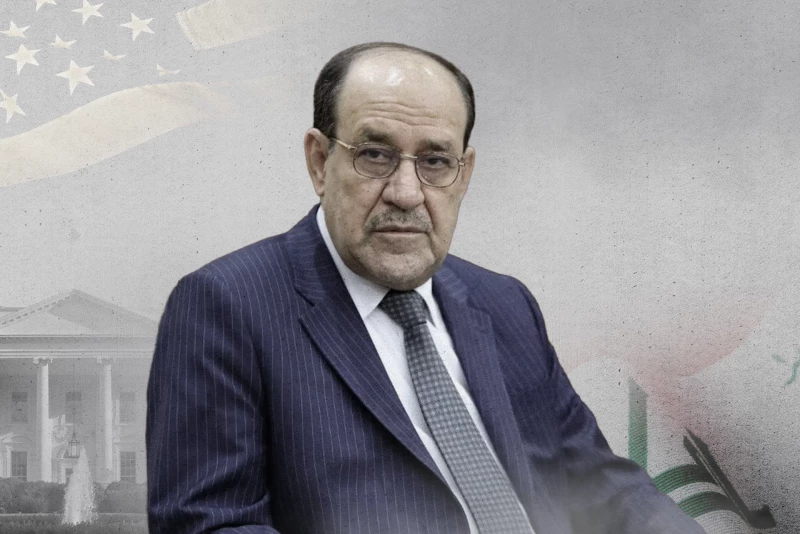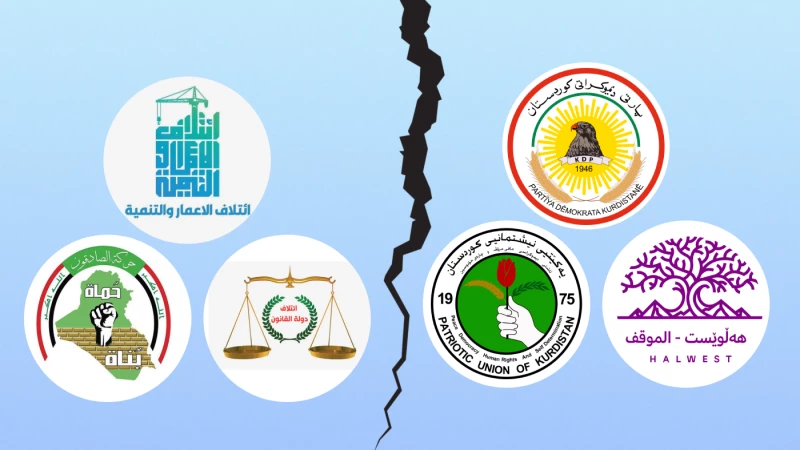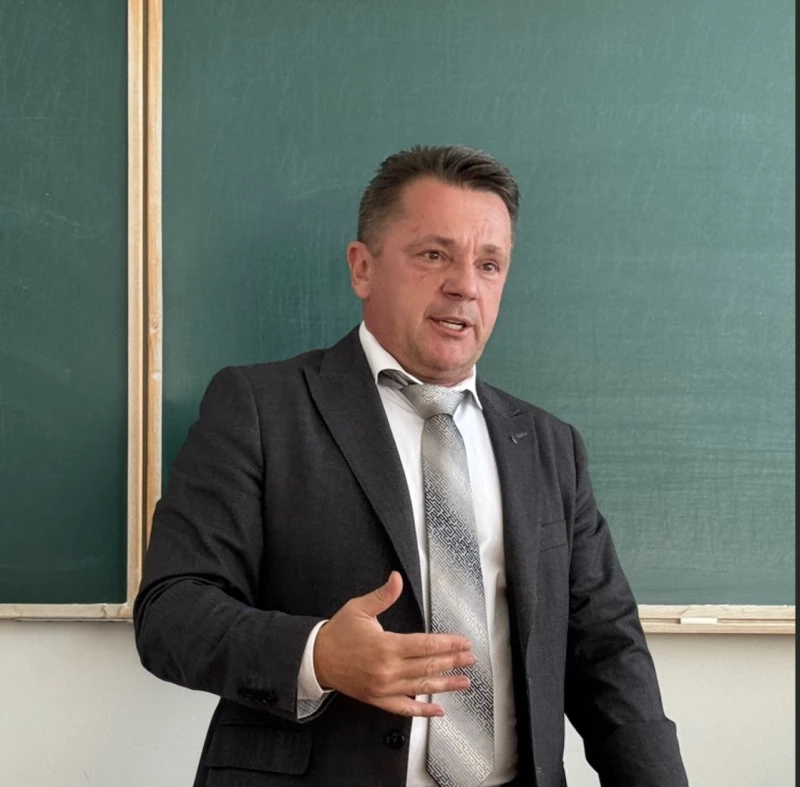Twenty years after the establishment of the new Iraq, corruption remains the most prevalent problem in the country. Deeply institutionalized within the state, it is the cause of several other ongoing issues, such as security breaches, lack of significant investment, and foreign influence.
There are several reasons behind the spread of corruption and why it is impossible to combat it without making a fundamental change in the new governance system, most notably the partisan system, the sectarian quota system, the collapse of the bureaucratic system, and the lack of transparency.
The partisan system
The parliamentary system in Iraq follows the multi-parties model, where dozens of political parties participate in the elections and gain seats in the parliament.
In the 2021 elections, over 400 political parties attended the elections, an almost double in comparison to 2018, when 204 political parties participated in the elections. The provincial elections in late 2023 was held with the participation of 268 parties and over 50 alliances.
The sectarian and political division between them is very sharp, which makes it very hard to agree on any bill unless an agreement takes place between the parties’ leaders.
The agreement, in turn, requires providing benefits and shares from the government to each party that votes for the bill. This has established an extortionate foundation for managing the government in a way that passing a bill systematically requires bribing the political parties, or it won’t get passed.
This is the reason for regular delays in the legislation process in Iraq and also the long delay in forming each government, reaching over a year in the 2021 elections.
The new political elite devised a system to address this issue, using their influence within government institutions to gain contracts without going through transparent procedures.
The political parties had to establish an alternative financial system to fund their activities, including expensive election campaigns. In some cases, they simply resorted to stealing money from public funds using a variety of legal loopholes.
Many projects in Iraq remain incomplete, with some never starting. For instance, the Iraqi government allocated 573 billion dinars (equivalent to 500 million USD) to prepare the city of Najaf to be recognised by the Islamic Educational, Scientific and Cultural Organization (ISESCO) as the Capital of Islamic Culture in 2012.
The money was allocated to several projects in the city and awarded to different companies affiliated with political parties. However, even after more than a decade, the majority of these projects, such as the Culture Palace, remain unfinished.
Sectarian quota system
The sectarian quota system in Iraq has created a systematic foundation for corruption. Government formation always involves a complicated power sharing process that occurs not only at the macro level among the three main components of the Shiites, the Sunnis, and the Kurds, but also at the micro level among political parties and groups. This created a competition between all sects to expand their influence in the government and get a share of it.
Unlike most parliamentary systems worldwide, elections in Iraq do not result in forming a majority government and a minority opposition.
Instead, the government is often a consensus entity formed by all political parties altogether. This is due to a manipulation of the constitution that occurred gradually since 2010, when the federal court, under political influence, ruled, and oddly so, that the largest bloc in parliament is not the one that won the most seats but the one that forms the largest alliance.
This allows the losers of the elections to attract members of the parliament via political and economic influence and create a bloc larger than that of the election winner.
In 2022, the federal court completed this manipulation process by ruling that the president, as the first step in forming the government, cannot be elected unless two-thirds of the members are present in parliament. This blocks the largest bloc from forming the government without agreeing with other blocs.
A quick look at the agreement of forming the current government shows how each of the dominant parties demanded some benefits in return for allowing the government to be formed.
The Shiites agreed to pay the Kurdistan Region’s budget share in return for allowing southern provinces to receive a petrodollar share (a special amount of the budget going to them directly, not through the central government), and the Sunni areas receive a special budget for reconstruction.
These funds usually go to the political party in charge of the province or region and are spent without a proper, transparent process.
In such circumstances, all participants demand a share in the government, which leads to a high level of corruption agreed and covered by all because all have a share in it.
It also ruins the basic logic of the parliamentary system, where you have a majority running the government and a minority overseeing and monitoring the government and stopping possible corruption deals.
The collapse of the bureaucratic system and lack of transparency
The bureaucratic system in Iraq, which serves as the government’s engine, has become dysfunctional due to political interference during the dictatorship era and a decade of severe sanctions.
During the 1990s, high-ranking experts fled the system, seeking refuge in better countries in the West and Gulf States. Middle-ranking personnel have ceased to develop themselves and keep up with the latest world innovations in government management.
Sanctions have also contributed to a culture of bribery and corruption within the system. Almost every administrative work in Iraq at the individual level or groups and company level requires a high amount of bribing to several parties in the relevant departments.
The poor and old bureaucratic system is not sufficient and capable of preventing corruption, but oppositely it opens innovative methods for getting around the regulations and protocols that were made to stop or reduce corruption.
The bureaucratic system is also not sufficient and capable of monitoring the financial and economic process to prevent any attempts of corruption. all bureaucratic works are still on paper, not online. The government has failed to develop an e-government system that reduce the possibility fraud and corruption.
All the above have led the government on a failing path. When a new minister or head of an institution is appointed, he has an already established network within the organization that helps him immediately find ways to siphon off money.
The recent “heist of the century” in Iraq’s taxation office is a clear example of this phenomenon. Nour Zuhair, the leader of the heist, worked with a network of influential personnel in the taxation office and affiliated banks to facilitate the theft.
Similarly, there are networks in the Ministry of Interior, the land registration office, the tourism department of the Ministry of Culture, and other governmental entities, each with full knowledge of the organization’s resources and several methods for taking them over.
Corruption in Iraq always has two sides. On one side, there is a political figure or group that ensures crucial political shielding, obtaining the necessary licenses, passing important legislation, and eliminating any legal or bureaucratic barriers. On the other side, there is a technical expert or team adept at maneuvering through procedures to illicitly acquire money, employing methods that are essentially fake, though they may appear semi-legal.

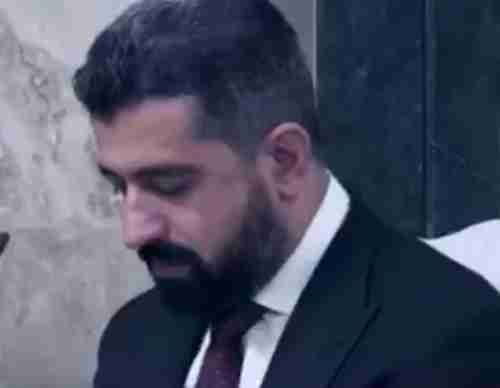
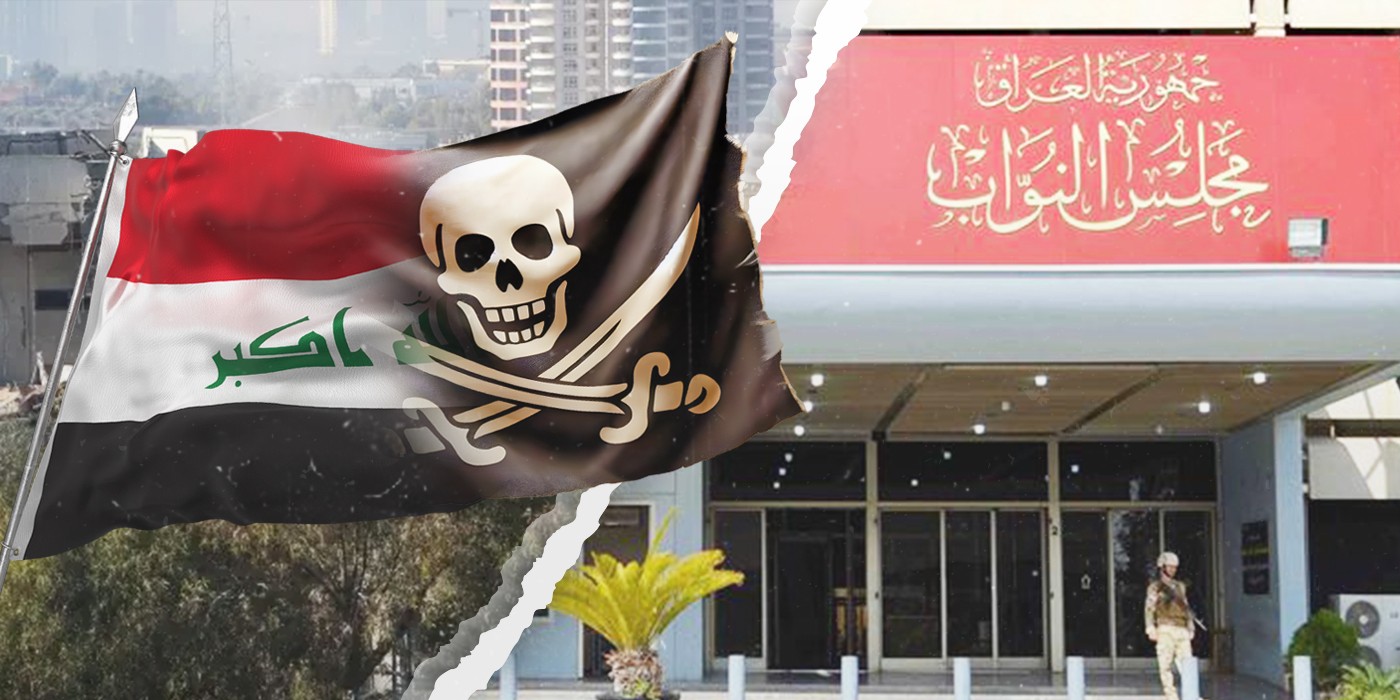
 Facebook
Facebook
 LinkedIn
LinkedIn
 Telegram
Telegram
 X
X
